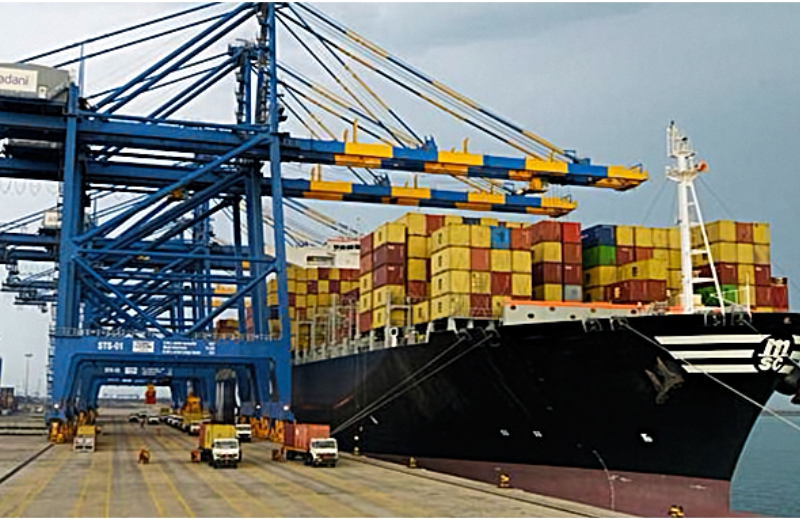[vc_row][vc_column][vc_column_text]
Adani Ports and Special Economic Zone (APSEZ) is shifting focus on long-term cargo contracts to maintain growth in traffic volumes. The private port operator handles 15 per cent of the country’s export-import cargo.
The share of long-term contracts in APSEZ’s overall cargo volumes increased 59 per cent between April 2014 and March 2017, while the share of short-term contracts has declined from 41 per cent to 38 per cent.
The overall cargo volumes grew by a compounded annual growth rate (CAGR) of 10.7 per cent during this period.
Karan Adani, chief executive officer, APSEZ, thus said, “In line with our goal to reduce dependence on individual commodities and to offset the decline in coal imports following the government’s revised policy, we ramped our efforts to diversify our cargo mix and increase container volumes. In FY17, 62 per cent of our cargo volumes materialised from long-term contracts,” told a newspaper.
“We moved from short-term contracts to long-term multi-year coal supply arrangements for a large number of customers,” he added.
However, as the domestic coal production has increased over the last three years, imports have fallen, a fact that also reflects in ASPEZ’s cargo composition.
The share of coal in the private port operator’s cargo volumes has fallen from 47 per cent in 2014-15 to 37 per cent in 2016-17. In contrast, share of container cargo has increased from 29 per cent of total cargo volumes in 2014-15 to 37 per cent in 2016-17.
Adani explained, “We saw a growth in agriculture, iron, steel, and project cargo volumes, which contributed to a healthy cargo mix and higher margins. FY17 saw containers constitute 37 per cent of our total cargo, compared to 32 per cent in FY16. Coal now comprises 36 per cent of our cargo, compared to 41 per cent last year. Crude and other cargo, which grew by 17 per cent, now constitute 27 per cent of the total cargo.”
The company expects overall container volumes to grow by 20 per cent and overall cargo volumes by 12-14 per cent in FY18. “We estimate a rise in EBITDA margins from 69 per cent to 70 per cent through enhanced use of technology, diversified cargo mix and higher capacity utilisation,” Adani said.
[/vc_column_text][/vc_column][/vc_row]






